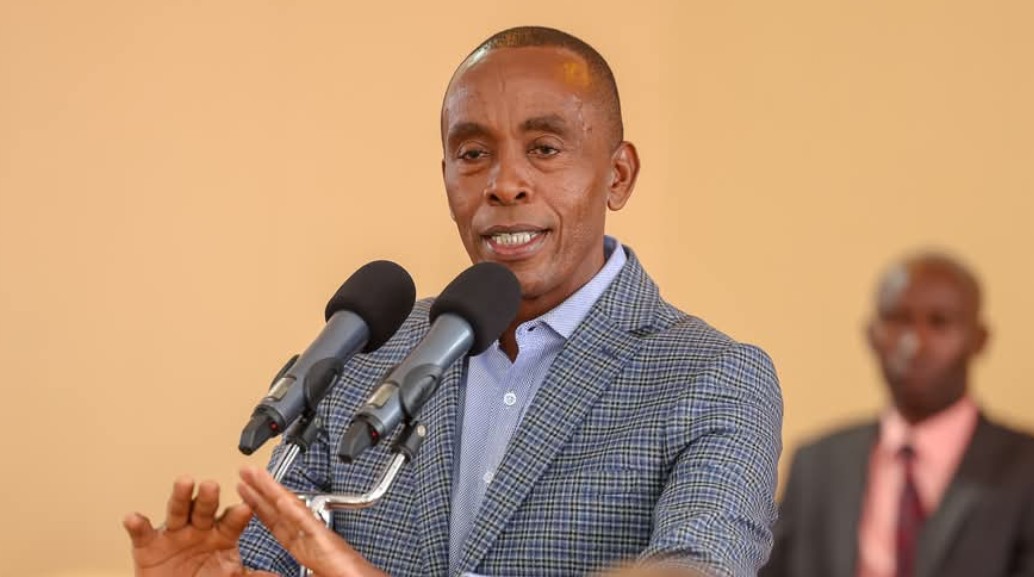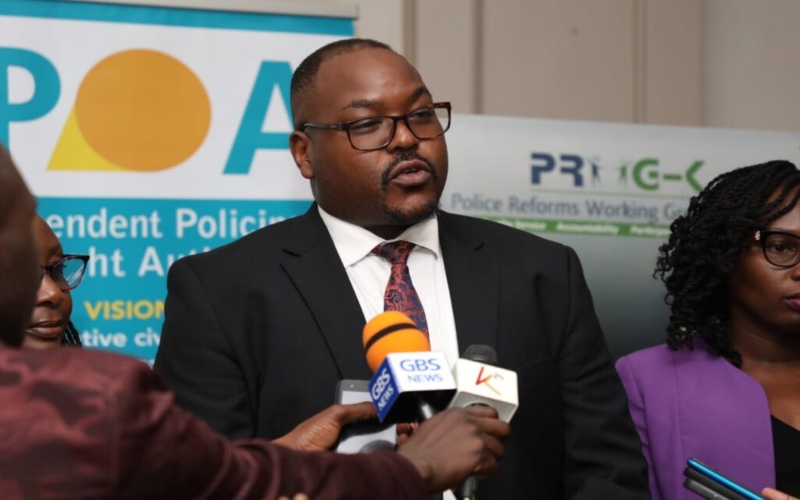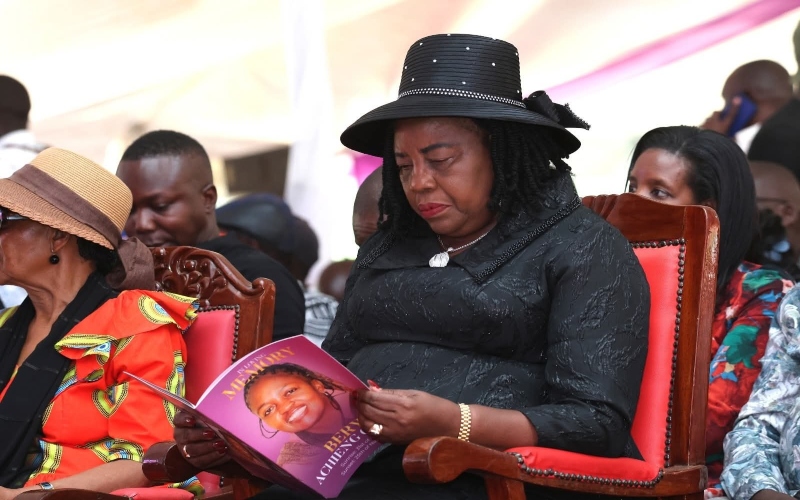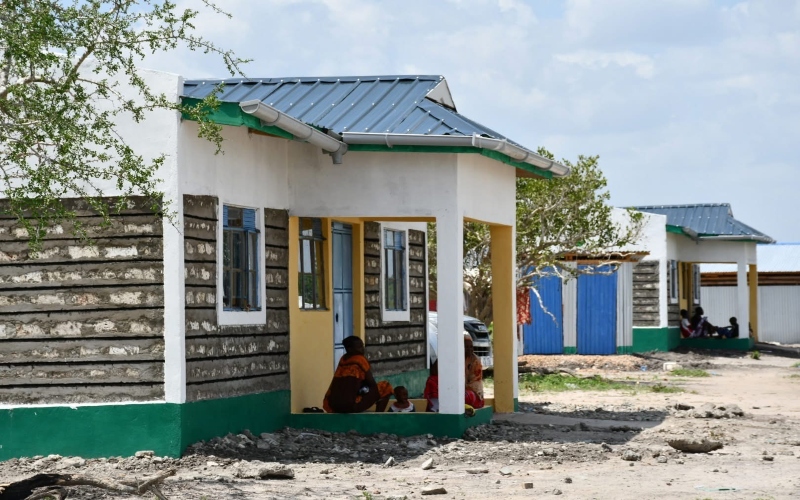Court declines to stop DCI, EACC from investigating Governor Wamatangi over alleged corruption

It is alleged that the EACC is investigating the procurement of ERP system tenders allegedly awarded to companies associated with him by three road agencies – Kenya National Highways Authority (KeNHA), Kenya Urban Roads Authority (KURA) and Kenya Rural Roads Authority (KeRRA).
The High Court has declined to bar the Director of Criminal Investigations (DCI) and the Ethics and Anti-Corruption Commission (EACC) from investigating Kiambu Governor Kimani Wamatangi over the procurement of tenders in the county.
Justice Chacha Mwita instead directed Wamatangi to serve the Director of Public Prosecutions, Renson Ingonga, and the EACC with the court documents. He further ordered that the case be mentioned on July 24 for directions.
More To Read
- IEBC blames police officers for by-election violence, maintains poll largely successful
- EACC traces Sh22.9 billion, recovers Sh3.4 billion in fight against corruption
- Illegally grabbed Mombasa land to host affordable housing units after EACC recovery
- Court allows detectives to detain seven Daystar students over death of colleague at Ngara Apartment
- Only 12 of 58 EACC corruption cases cleared for prosecution by DPP over three-month period
- Man held in Kilimani over Sh2.5 million police recruitment scheme
Wamatangi had moved to court seeking to block his arrest and prosecution.
It is alleged that the EACC is investigating the procurement of ERP system tenders allegedly awarded to companies associated with him by three road agencies – Kenya National Highways Authority (KeNHA), Kenya Urban Roads Authority (KURA) and Kenya Rural Roads Authority (KeRRA).
He had sought orders to block any summons, arrest or charges against him over the said tenders.
“This Court be pleased to stay any ongoing investigations by the EACC or Inspector General touching on him pending the hearing and determination of the petition,” pleaded Wamatangi.
He also asked the court to quash the investigations commenced by the EACC regarding the tenders awarded to the said companies.
In his petition, Governor Wamatangi argued that the EACC had violated Article 3 of the Constitution by failing to observe explicit provisions on how he should be treated.
“That this Court be pleased to declare that any acts done in contravention of the Constitution, and any consequential legislation deriving legitimacy from the Constitution, offend the supremacy of the Constitution and are thus invalid,” Wamatangi urged.
He further stated that the EACC had sought orders from the lower court to investigate bank accounts held at Family Bank belonging to five companies: King Group Company, Lub Plus Oil & Energy Co. Ltd, Quick Fix Auto Garage Ltd, King Construction Co. Limited, and King Realfors Ltd.
In the application, he said, the EACC alleged that the companies had corruptly and irregularly received payments from the three government agencies between 2017 and 2022 as a result of unspecified procurement irregularities.
He claimed that in obtaining these orders, the EACC misrepresented to the court that the companies were owned by him, thereby justifying the investigation.
However, Wamatangi insisted he was neither a director nor a shareholder of the said companies.
He told the court that by invoking his name and position to create an impression of loss of public funds, merely because he holds public office, the EACC was able to secure the orders.
“Immediately following the issuance of the orders to investigate the accounts, the EACC then clandestinely moved to the High Court in Milimani Anti-Corruption Case Number [unspecified] to freeze the said accounts even before any investigations could progress and a reasonable basis for freezing the accounts could be established,” he said.
By an order dated July 9, 2025, the High Court froze the accounts for a period of six months. In obtaining the freezing orders, the EACC relied solely on the ex-parte application filed at the lower court.
He further alleged that the EACC later admitted before the High Court that the firms were merely associated with him – a departure from their earlier claim that he owned them outright.
Unknown to the superior court, even before applying for and obtaining the freezing orders, the EACC, in concert with the Financial Reporting Centre (FRC), had allegedly written to Family Bank to restrict access to the accounts. This, he argued, was contrary to the procedure under Section 24 of the Proceeds of Crime and Anti-Money Laundering Act, which requires the FRC first to summon the affected person to show cause why such action should not be taken.
“EACC thus used the court to sanitise an illegality it had already committed,” he told the court.
He argued that a review of the freezing application would reveal that the EACC was on a fishing expedition, using its investigative powers to harass him.
He further claimed that the EACC has yet to formally close, wind up or terminate the ERP investigations and has now launched fresh investigations targeting him, his family members and close associates.
“It is inconceivable that a second series of investigations against five companies has now been commenced, based on separate facts and separate allegations, but again targeting the applicant and his close associates,” the court heard.
Top Stories Today
















































